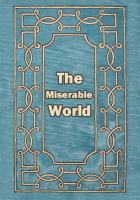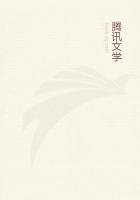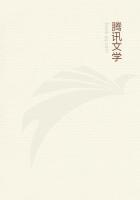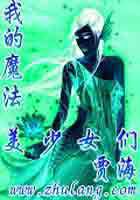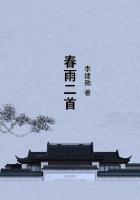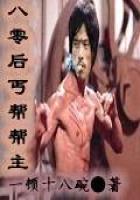MY father was a native of England, son of a cadet of a great, ancient, but untitled family; and by some event, fault or misfortune, he was driven to flee from the land of his birth and to lay aside the name of his ancestors. He sought the States; and instead of lingering in effeminate cities, pushed at once into the far West with an exploring party of frontiersmen. He was no ordinary traveller; for he was not only brave and impetuous by character, but learned in many sciences, and above all in botany, which he particularly loved. Thus it fell that, before many months, Fremont himself, the nominal leader of the troop, courted and bowed to his opinion.
They had pushed, as I have said, into the still unknown regions of the West. For some time they followed the track of Mormon caravans, guiding themselves in that vast and melancholy desert by the skeletons of men and animals. Then they inclined their route a little to the north, and, losing even these dire memorials, came into a country of forbidding stillness.
I have often heard my father dwell upon the features of that ride: rock, cliff, and barren moor alternated; the streams were very far between; and neither beast nor bird disturbed the solitude. On the fortieth day they had already run so short of food that it was judged advisable to call a halt and scatter upon all sides to hunt. A great fire was built, that its smoke might serve to rally them; and each man of the party mounted and struck off at a venture into the surrounding desert.
My father rode for many hours with a steep range of cliffs upon the one hand, very black and horrible; and upon the other an unwatered vale dotted with boulders like the site of some subverted city. At length he found the slot of a great animal, and from the claw-marks and the hair among the brush, judged that he was on the track of a cinnamon bear of most unusual size. He quickened the pace of his steed, and still following the quarry, came at last to the division of two watersheds. On the far side the country was exceeding intricate and difficult, heaped with boulders, and dotted here and there with a few pines, which seemed to indicate the neighbourhood of water. Here, then, he picketed his horse, and relying on his trusty rifle, advanced alone into that wilderness.
Presently, in the great silence that reigned, he was aware of the sound of running water to his right; and leaning in that direction, was rewarded by a scene of natural wonder and human pathos strangely intermixed. The stream ran at the bottom of a narrow and winding passage, whose wall-like sides of rock were sometimes for miles together unscalable by man.
The water, when the stream was swelled with rains, must have filled it from side to side; the sun's rays only plumbed it in the hour of noon; the wind, in that narrow and damp funnel, blew tempestuously. And yet, in the bottom of this den, immediately below my father's eyes as he leaned over the margin of the cliff, a party of some half a hundred men, women, and children lay scattered uneasily among the rocks.
They lay some upon their backs, some prone, and not one stirring; their upturned faces seemed all of an extraordinary paleness and emaciation; and from time to time, above the washing of the stream, a faint sound of moaning mounted to my father's ears.
While he thus looked, an old man got staggering to his feet, unwound his blanket, and laid it, with great gentleness, on a young girl who sat hard by propped against a rock. The girl did not seem to be conscious of the act; and the old man, after having looked upon her with the most engaging pity, returned to his former bed and lay down again uncovered on the turf. But the scene had not passed without observation even in that starving camp. From the very outskirts of the party, a man with a white beard and seemingly of venerable years, rose upon his knees, and came crawling stealthily among the sleepers towards the girl; and judge of my father's indignation, when he beheld this cowardly miscreant strip from her both the coverings and return with them to his original position. Here he lay down for a while below his spoils, and, as my father imagined, feigned to be asleep; but presently he had raised himself again upon one elbow, looked with sharp scrutiny at his companions, and then swiftly carried his hand into his bosom and thence to his mouth. By the movement of his jaws he must be eating; in that camp of famine he had reserved a store of nourishment; and while his companions lay in the stupor of approaching death, secretly restored his powers.
My father was so incensed at what he saw that he raised his rifle; and but for an accident, he has often declared, he would have shot the fellow dead upon the spot. How different would then have been my history! But it was not to be: even as he raised the barrel, his eye lighted on the bear, as it crawled along a ledge some way below him; and ceding to the hunters instinct, it was at the brute, not at the man, that he discharged his piece. The bear leaped and fell into a pool of the river; the canyon re-echoed the report; and in a moment the camp was afoot. With cries that were scarce human, stumbling, falling and throwing each other down, these starving people rushed upon the quarry; and before my father, climbing down by the ledge, had time to reach the level of the stream, many were already satisfying their hunger on the raw flesh, and a fire was being built by the more dainty.

